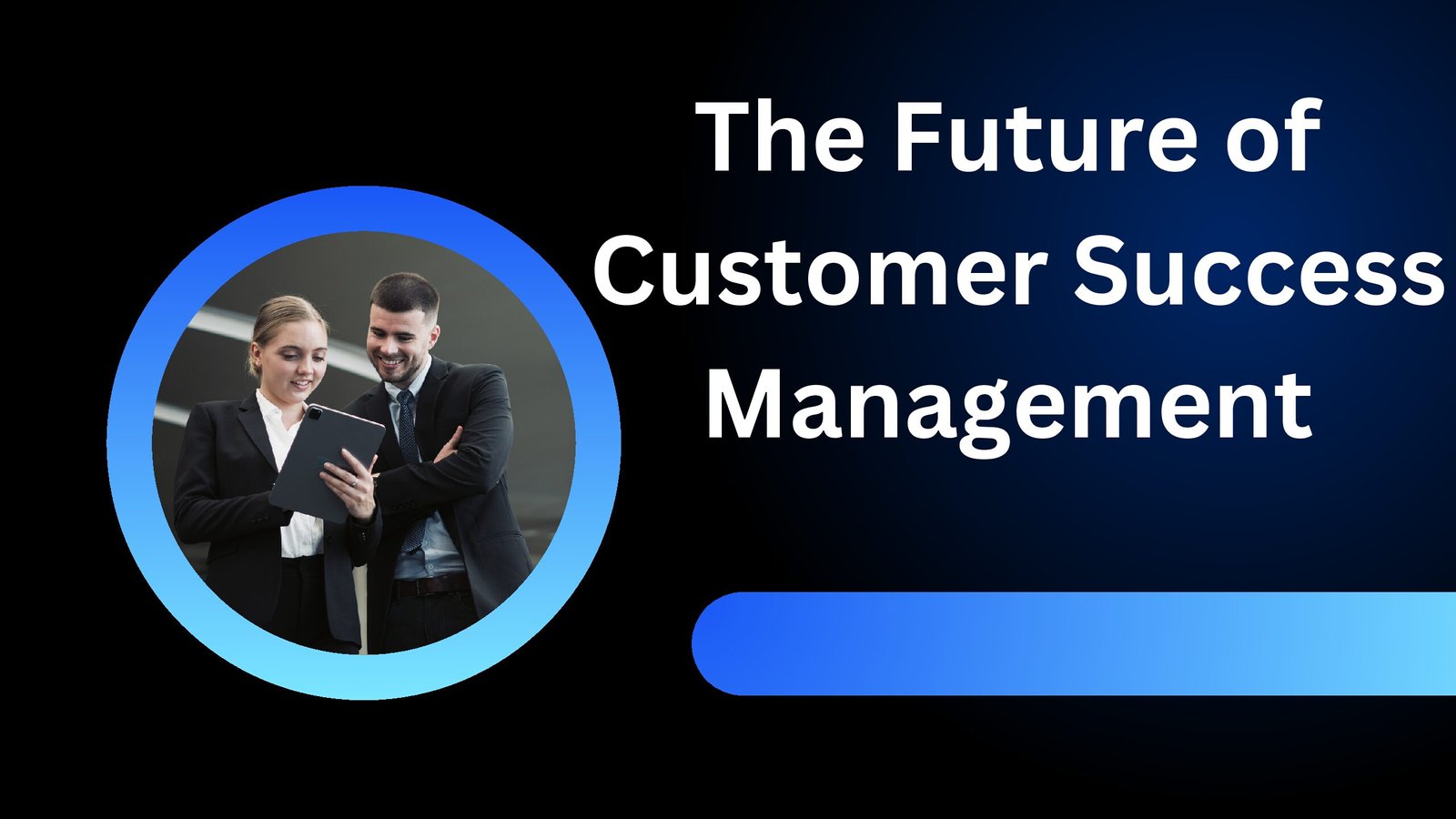The Future of Customer Success Management
Introduction

The Future of Customer Success Management Customer success management (CSM) has quickly transformed from a support function to a strategic pillar of modern business operations. As companies continue to adopt customer-centric strategies, the role of customer success managers is becoming more sophisticated, data-driven, and proactive. This blog explores the future of customer success management, identifying key trends, evolving responsibilities, innovative technologies, and how organizations can adapt to stay competitive.
1. The Evolution of Customer Success Management
1.1 From Support to Strategic Role
The Future of Customer Success Management Originally, customer success was often conflated with customer service or suppor. However, with the rise of subscription-based and SaaS models, retaining existing customers became more profitable than acquiring new customers. This shift led companies to invest in dedicated CSM teams.
1.2The Future of Customer Success Management Boosting revenue and growth Modern CSMs are responsible not only for reducing churn but also for: Fostering upsell and cross-sell opportunities Increasing net revenue retention (NRR) Influencing product roadmap decisions As a result, CSMs are now considered key contributors to company growth.
2. Trends shaping the future of CSMs
2.1 The Future of Customer Success Management Proactive customer engagement In the future, CSMs will move beyond reactive support. They will use predictive analytics to anticipate issues and resolve them before they even come to the customer’s attention.
2.2 The Future of Customer Success Management Personalization at scale Technology will enable personalized experiences based on customer data, usage patterns, and preferences. Automated touchpoints, customized onboarding, and success plans will become the norm.
2.3 The Future of Customer Success Management Improved collaboration across teams CSMs will work more closely with sales, marketing, product, and support to align messaging, product features, and customer expectations. Silos will continue to break down.
2.4 AI and automation AI-powered tools will automate repetitive tasks like health score tracking, follow-up emails, and feedback surveys, allowing CSMs to focus on higher-value, relationship-driven tasks.
2.5 Outcome-based success metrics Instead of just measuring churn or satisfaction, success will be defined by customer outcomes. CSMs will have to prove that their product brings business value to each customer.
3. The changing role of the customer success manager
3.1 Becoming a trusted advisor CSMs of the future will act like advisors, helping customers integrate solutions into their business processes, define KPIs, and optimize performance.
3.2 Data literacy The ability to analyze customer data, interpret metrics, and make data-driven decisions will be essential. Understanding customer behavior will enable better segmentation, engagement, and retention strategies.
3.3 Strategic Planning CSMs will be involved in long-term account planning, co-development roadmaps, and actively identifying growth opportunities for customers.
3.4 Ownership of Customer Outcomes CSMs will be increasingly responsible for ensuring that customers realize value from a product or service. This includes: Business reviews Executive sponsorship ROI tracking
4. Emerging Technologies and Tools
4.1 AI-Driven Insights Customer Success platforms like Gainsight, Totango, and ChurnZero are integrating AI to: Predict churn Recommend actions Personalize communications
4.2 Customer Data Platforms (CDPs) These platforms collect customer data from various touchpoints, enabling CSMs to gain a 360-degree view of the customer journey.
4.3 Chatbots and Virtual Assistants AI-powered chatbots can manage basic queries and onboarding steps, allowing CSMs to focus on strategic tasks.
4.4 Customer Health Scoring Advanced algorithms now evaluate engagement, usage, satisfaction, and sentiment to calculate a real-time customer health score.
4.5 Automating Workflows Tools like Zapier, HubSpot, and Salesforce allow for the automation of regular communications, alerts, and workflows based on customer behavior.
5. The CSM Tech Stack of the Future Key Tools: CRM: Salesforce, HubSpot CSM Platform: Gainsight, Totango Communications: Slack, Zoom, Microsoft Teams Data Analytics: Tableau, Looker, Google Data Studio Project Management: Asana, Jira, Monday.com Integrations and Automation: Zapier Segment Tray.io
6. Skills for a Future-Ready CSM
6.1 Emotional Intelligence (EQ) Empathy, active listening, and relationship-building will continue to be critical in understanding and supporting customers.
6.2 Technical Competency Understanding how your product works and being able to explain technical aspects to customers is essential.
6.3 Analytical Thinking The ability to read data and extract actionable insights will help drive customer growth.
6.4 Adaptability As customer needs, tools, and expectations change, CSMs must constantly evolve.
6.5 Strategic Mindset Seeing the big picture, identifying trends, and planning the long-term customer journey will be critical





